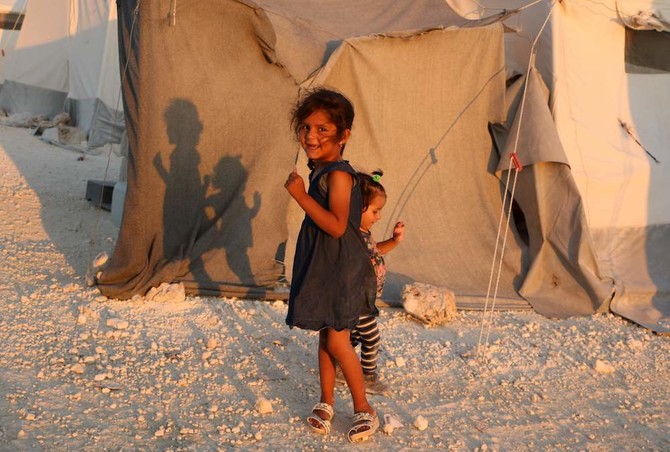GENEVA: The UN’s Syria peace envoy offered Thursday to travel to Idlib to help ensure civilians can leave through a humanitarian corridor as the regime warned it would “go all the way” to recapture the province .
Fears are growing that a government offensive to retake the last major region controlled by rebels is imminent.
“I am once again prepared... personally and physically to get involved myself... to ensure such a temporary corridor would be feasible and guaranteed for the people so that they can then return to their own places once this is over,” Staffan de Mistura said in Geneva.
His comments came amid fears the Syrian government, backed by long-time ally Russia, is mobilizing for a military offensive to retake Idlib.
Syrian foreign minister Walid Al-Moualem said on Thursday their main targets were hardline Al-Nusra militants, Reuters reported.
Speaking after talks with Russian foreign minister Sergei Lavrov, Moualem said Syrian forces would not use chemical weapons in any offensive and that it did not have such weapons. Syria would try to avoid civilian deaths, he added.
Idlib, which borders Turkey, is home to nearly three million people, up to half of whom are rebels and civilians transferred en masse from other territory that has fallen to Syrian troops after intense assaults, AFP reported.
A major military operation in Idlib would pose a particular humanitarian nightmare because there is no nearby opposition territory left in Syria where people could be evacuated to.
“There is no other Idlib,” de Mistura said, stressing the need to ensure civilians can evacuate to nearby areas under government control, with guarantees their rights will be respected once they get there.
“It would be a tragic irony frankly if at almost the end of... a territorial war inside Syria, we would be witnessing the most horrific tragedy to the largest number of civilians,” he said.
De Mistura stressed the need for “constructive, effective” support from Damascus, since the possible corridor would most likely need to lead into government-controlled territory.
“Short of going to Turkey, the civilians have no other option in order not to be where fighting may take place.”
The most important thing, he said, was to avoid “a hurried escalation,” which could easily lead to “the worst-case scenario.”
“It would be quite tragic at this stage, having seen how difficult the seven years (of Syria’s war) have been.”
More than 350,000 people have been killed and millions displaced since Syria’s war started in 2011 with the brutal repression of anti-government protests.
Two years ago, de Mistura offered to go to eastern Aleppo and to personally escort Al-Nusra fighters out of the besieged city.
“Al-Nusra refused my offer to accompany them out, and they went to Idlib, and we lost two months at least and thousands of people died because of that,” he said.
The UN envoy said there were an estimated 10,000 Al-Qaeda and Al-Nusra fighters in Idlib, along with their families.
While he stressed the legitimacy of battling such “UN-identified terrorists,” he insisted efforts to defeat them did not justify putting the lives of some 2.9 million people in the area at risk.
“There is and can be no justification... to not avoid using heavy weapons in densely populated areas,” he said.
On Wednesday, UN chief Antonio Guterres warned that full-scale military operations in Syria’s Idlib province could lead to a “humanitarian catastrophe” and cautioned against the use of chemical weapons.
De Mistura echoed that concern.
“The issue of avoiding the potential use of chemical weapons is indeed crucial,” he said, stressing that such use “would be totally unacceptable.”
“We are all aware that both the government and Al-Nusra have the capability to produce weaponized chlorine, hence an increased concern by all of us.”


























